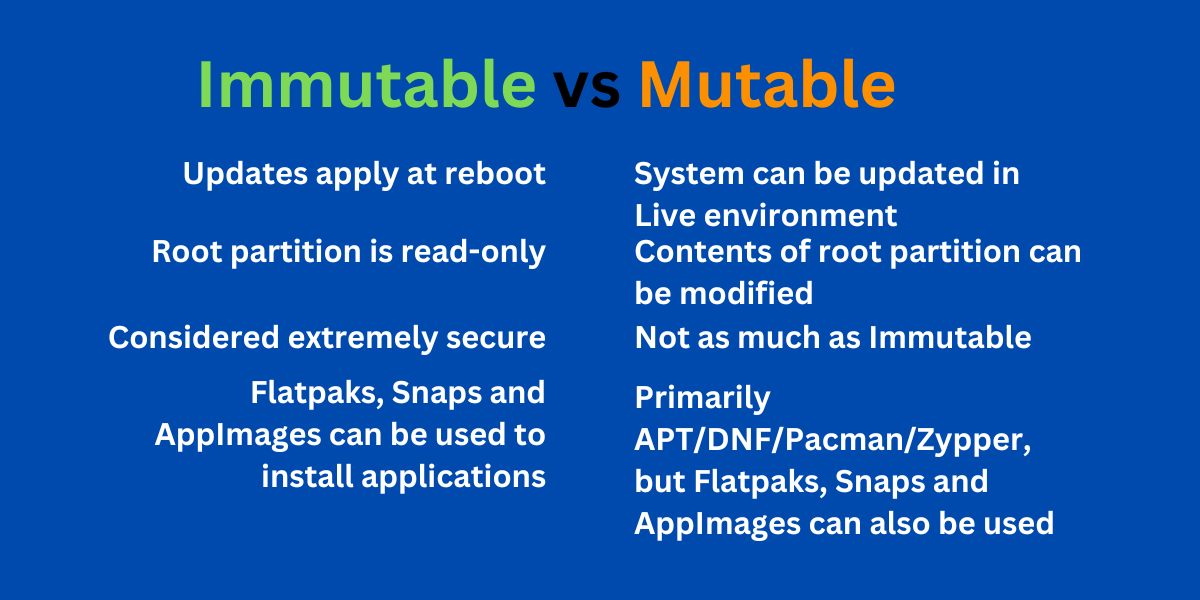this post was submitted on 13 Jan 2025
368 points (94.0% liked)
Linux
58947 readers
1300 users here now
From Wikipedia, the free encyclopedia
Linux is a family of open source Unix-like operating systems based on the Linux kernel, an operating system kernel first released on September 17, 1991 by Linus Torvalds. Linux is typically packaged in a Linux distribution (or distro for short).
Distributions include the Linux kernel and supporting system software and libraries, many of which are provided by the GNU Project. Many Linux distributions use the word "Linux" in their name, but the Free Software Foundation uses the name GNU/Linux to emphasize the importance of GNU software, causing some controversy.
Rules
- Posts must be relevant to operating systems running the Linux kernel. GNU/Linux or otherwise.
- No misinformation
- No NSFW content
- No hate speech, bigotry, etc
Related Communities
Community icon by Alpár-Etele Méder, licensed under CC BY 3.0
founded 6 years ago
MODERATORS
you are viewing a single comment's thread
view the rest of the comments
view the rest of the comments

Do you have any examples of the kind of "tinkering" you couldn't do with an immutable distro? I haven't run into any restrictions after more than a year.
.... why would you want to install packages with
sudo? The proper way is to install them (as a user, not root) usingrpm-ostree, which will layer the packages on top of the image, automatically installing them for every future system as well.You haven't actually looked into immutable distributions, have you?
I keep hearing this, but people never elaborate on those "other reasons". Did I miss where you mentioned them?
You mentioned storage, but AFAIK atomic Fedora doesn't use more space (unless you keep multiple versions for rolling back).
Of course it's ok! You do whatever you want. Though I'd like to clear up a couple of misconceptions:
You don't have to, happens automatically.
Fair, though you don't have to use them at all - you could run everything in a distrobox.
This really depends on what system files you mean. Anything in
/etc/? Fully writable. Everything is configurable either in your home directory or in/etc/, so I haven't run into any issues with not being able to modify something - and if you do run into that, you always have distrobox.Don't need to, you have distrobox for that.
That's fair. It's been very small for me, and the issues have helped me become a better Linux developer, but it does bring its own problems in some cases.
That's the thing, I hear this a lot, and I just don't know what the big changes are. I installed Kinoite, set up a distrobox, and have been smooth sailing since - all my previous installations have had far more issues, and I just haven't really changed much (besides switching from Ubuntu to Fedora, but I'm happy about that, fuck Canonical).
All that's totally fine! I wasn't trying to convince you. I just don't want newbies to get discouraged by reading "all this stuff is non-standard and you can't tinker and do stuff". Because you can, it's the same stuff.
Definitely not, this kind of system is perfect for newbies. You have a distrobox you can break all day long, and your main system stays nice and working.
That's what I mean. You put it like it's incredibly complicated and strange, when there's pretty much only upsides. Do you have any idea how much time I've spent on various distributions to debug NVidia issues? Everything is working perfectly now, and it has for months. I've never had this good of a Linux experience.
Hey! So I have no experience with the Arch-based immutable systems (beyond my own Steam Deck), but it seems like they don't support layering the way Fedora does with ostree. The easiest solution for you would be to create a script that you can execute after every update - that should at least keep the work to a minimum. If that's not good enough Bazzite is probably your best bet. I really like the atomic Fedora systems, but I can understand not wanting to re-do your setup if it's working well!
That sucks! Which handheld is it, if I may ask?